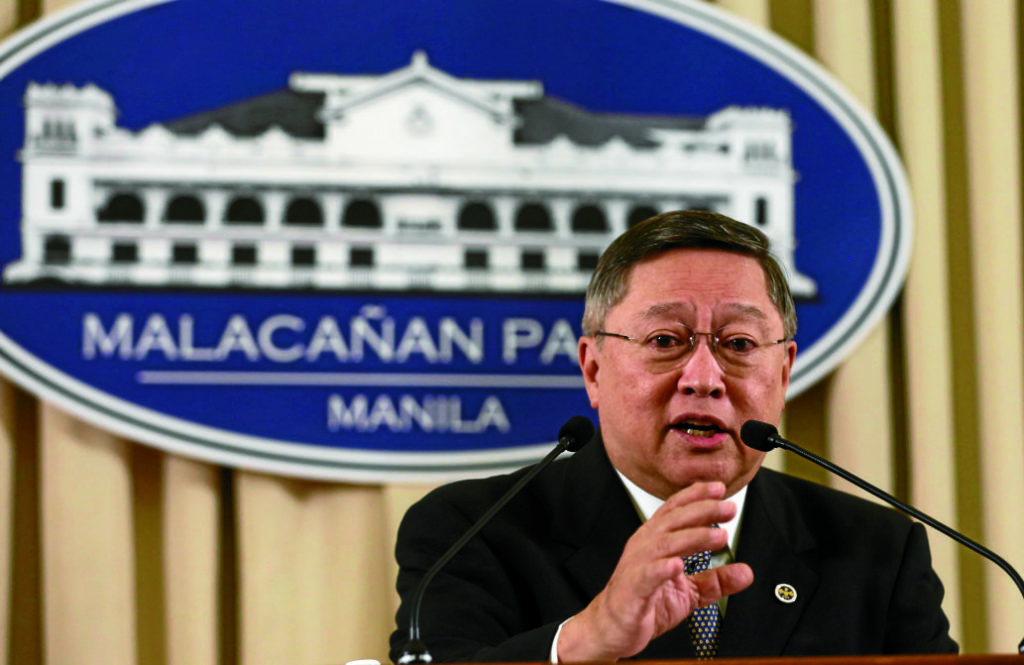
Finance Secretary Carlos Dominguez. INQUIRER PHOTO/JOAN BONDOC
The government plans to borrow P140 billion from China on top of securing P6 billion in grants for infrastructure projects, Finance Secretary Carlos G. Dominguez III said yesterday.
Dominguez told the House appropriations committee that the government would also sell $200 million in so-called panda bonds in China by October or November.
National Treasurer Rosalia V. de Leon told reporters last week that the Monetary Board, the Bangko Sentral ng Pilipinas’ highest policymaking body, already approved in principle the planned issuance of three-year panda bonds while the Philippine government is in the process of also securing approvals from the People’s Bank of China.
Panda bonds are yuan-denominated debt paper issued in China by foreign governments or companies.
As for the loans, Dominguez said they were considering official development assistance (ODA) to finance the bulk of the costs of three projects worth a total of P164.9 billion, namely: The P2.7-billion Chico River Pump Irrigation Project; the P10.9-billion New Centennial Water Source-Kaliwa Dam Project, and the P151.3-billion Philippine National Railway South Commuter Line.
Dominguez said the government was negotiating that the Chinese government charge the loans with an interest rate of lower than 2 percent a year.
Also, Dominguez said negotiations were ongoing for the grants that the Chinese government would provide to two bridge projects along the Pasig River—the P4.6-billion Binondo-Intramuros bridge and the P1.4-billion Estrella-Pantaleon bridge.
Since grants will not be paid back, these will not carry any interest, Dominguez pointed out.
But Dominguez clarified that the Philippine and Chinese sides were still “firming up the commitments” made by the latter on a project-to-project basis.
The finance chief noted that Chinese President Xi Jinping in October last year committed about $9 billion in ODA as well as commercial loan financing for the Philippines.
“Normally, it takes some time for feasibility studies to be completed. After the plans are in place, the loans will be negotiated. Financing always follows the plan,” Dominguez said.
When asked if Chinese contractors and workers would be prioritized for projects to be funded by China, Dominguez replied: “Our protocol with the Chinese for the tied financing portions is for the Chinese government to propose three qualified bidders to us from whom we will conduct the bidding.”
As for construction workers, Dominguez said “we will strictly follow Philippine laws, which require that foreign workers in the Philippines get permits and these work permits are only limited to highly skilled or highly technical or managerial positions.”